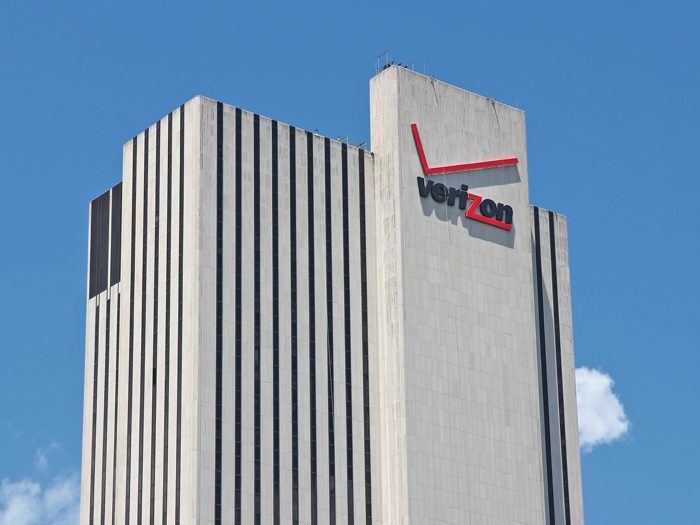Legal/Regulatory
Verizon Wins $40 Million in Long-Standing Court Battle with Insurers

In a court battle with its insurers spanning nearly 10 years, the score was finally settled when the Delaware Superior Court awarded Verizon Communications $40 million in unreimbursed defense costs plus millions more in prejudgment interest.
The telecommunications conglomerate went up against its primary and excess liability insurance carriers after they denied coverage to Verizon for an underlying securities claim litigation from 2009.
Liability Claims and Bankruptcy
Verizon sued its insurers after a long list of internal company decisions, new business adventures, policy language disputes and court battles. The main underlying actions at hand were:
- Verizon decided to create a standalone company as a “spin-off” of its print and electronic yellow-pages directories business. The company was called Idearc Inc. and was spun-off in 2006.
- Next, Verizon transferred its directories business to Idearc in exchange for Idearc’s common stock and promissory notes.
- Verizon distributed all its outstanding shares of Idearc common stock to Verizon shareholders. It took Idearc’s notes and transferred them to its own banks. In exchange, the banks gave the company debt securities they had purchased in the open market.
- The banks took the Idearc debt securities and sold them to previously solicited purchasers and lenders.
After the spin-off, Idearc functioned as an independent company. Then it defaulted on its promissory notes. Idearc filed for bankruptcy in 2009 with a total debt of $9.5 billion and assets of $1.8 billion, leading to a number of suits filed against Verizon alleging liability in connection to the spin-off.
Policies: Doing Due Diligence
Before the bankruptcy, when litigation was a mere concept and the spin-off’s prospects looked promising, Verizon and Idearc purchased primary and excess liability policies to protect against potential litigation risks and liabilities that could arise.
Illinois National Insurance Company held the primary policy. Excess policies were issued by a number of insurers, prominently XL Specialty Insurance Company, Zurich American Insurance Company and Twin City Fire Insurance Company. Requests for comment on the case by the carriers and/or their parent companies were declined.
Verizon and Idearc purchased primary and excess liability policies to protect against potential litigation risks and liabilities that could arise. It’s primary policy covered up to $15 million in liability limits.
These policies, collectively referred to as the Runoff Policies, would provide coverage for liability resulting from claims made during the policy period, November 2006 to November 2012. They allowed Verizon to recover defense costs in the event a securities claim was brought against the company and an insured person and they shared a joint defense.
When Idearc defaulted on its notes and was forced to file bankruptcy, one of the more prominent suits that came against the spin-off and Verizon was filed by U.S. Bank National Association.
U.S. Bank was appointed litigation trustee in Idearc’s bankruptcy. Its job was to recover funds for Idearc’s debt securities holders. It demanded $14 billion in damages from Verizon and John Diercksen, an executive and Idearc’s sole director. This flung the parties into a court battle spanning five years.
Ultimately, Verizon obtained dismissal of the initial claims in 2012.
Legal Fees and Denied Coverage
However, the years of litigation added up and legal costs were getting steep. At the start of the process, Verizon notified its primary carrier, along with the Runoff Policy holders, about the U.S. Bank suit. The primary carrier issued coverage for Diercksen’s defense costs, but it left Verizon hanging.
The policy, said the insurer, did not cover Verizon’s defense costs, because “the U.S. Bank complaint does not constitute a securities claim.”
Meanwhile, U.S. Bank was not satisfied. In 2013, it filed a second lawsuit, naming both Verizon and now Andrew Coticchio, former chief financial officer of Idearc, as defendants. It sought more than $2.85 billion in damages, including the non-payment of the Idearc debt securities from the first suit.
Verizon turned to its policy issuers, this time filing an instant suit that said it was entitled to $48 million in defense costs. The Runoff Policy holders held firm, claiming both U.S. Bank suits did not involve a securities claim.
At the end of 2014, the Runoff Policy holders conceded that, “if US. Bank fit within the Policy’s definition of ‘Securities Claim,’ [Verizon] would be entitled to defense costs.”
The telecommunications conglomerate was tasked with proving the underlying suits were, in fact, a securities claim.
The Final Leg of the Legal Race
Collectively, the Runoff Polices decided to let Illinois National, the primary policy holder, take the lead and speak on behalf of all the insurers, excess included, during the hearings. For over a year, Verizon and Illinois National worked hard to define the parameters surrounding the underlying suit.
In Verizon Communications, Inc. v. Illinois National Insurance Company, et al., waiting for the primary carrier to decide hurt the excess carriers big time.
In a court hearing in March 2017, Verizon reminded its excess carriers that if the “Defendants’ counsel [in this case, Illinois National] again conceded that if the Court ruled in favor of Verizon on the ‘Securities Claim’ issue, Verizon would be entitled to 100% of its costs.”
The excess carriers didn’t sway on their counsel, instead leaving the decision in Illinois National’s hands; the court found the U.S. Bank suits constituted as a securities claim. The excess carriers were on the hook.
The Runoff Policy holders then tried to fight the ruling, but the court wouldn’t budge. Because the excess carriers chose to let Illinois National handle counsel, they were not entitled to challenge rulings where they had already played a role.
The Delaware Superior Court laid down the law: “It is the Court’s opinion that it is simply time to stop this litigation Ferris wheel.
“If the Excess Insurers believe that they will overpay the Plaintiffs’ Defense Costs, now is not the time to address that concern,” said Judge J. Carpenter at the May 7, 2018 hearing. “This litigation has been pending for many years and even after concluding that the U.S. Bank Action is a Securities Claim, [Verizon and co.] have still not been advanced their costs.”
All excess carriers are obligated to pay prejudgment interest from January 9, 2014 until March 24, 2017, with a fixed interest rate of 5.75 percent. Illinois National was on the line for its full $15 million in policy limits plus prejudgment interest. In total, Verizon was awarded $40 million in unreimbursed defense costs, plus millions more in prejudgment interest.
McKool Smith represented Verizon in this case. Attorneys representing the excess carriers were unavailable or declined to comment. To read the court’s opinion, see Verizon Communications, Inc. v. Illinois National Insurance Company, et al. &










